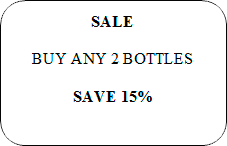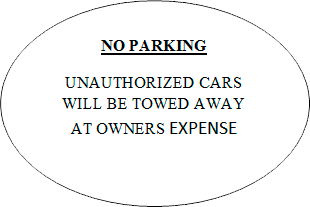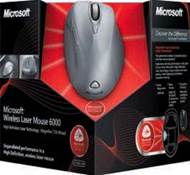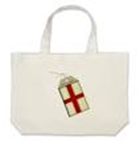|
CONTENTS UNIT 5. PRODUCTION COST VS QUALITY UNIT 6. QUALITY MANAGEMENT TEAM |
UNIT 4. PRICE AND QUALITY Reading: Relationship Between
Quality And Price Video: Factors that Influence the
Price of Wine Grammar: Conditionals Career Skills: Making Yourself
Clear Dilemma: Making a Design
Presentation Keynotes: Price Sensitivity is
the degree to which the price of a product affects consumers purchasing
behaviors. The degree of price sensitivity varies from product to product
and from consumer to consumer. In
economics, price sensitivity is commonly measured using the price elasticity
of demand. Preview: 1. Discuss the questions with a
partner. 1.
How do you understand the term
“price sensitivity”? 2. What affects
price sensitivity? 3.
How would you measure price
sensitivity? 2. According to Kimberly Chulis, founder of Core Analytics, LLC, consumers go
through a five-step decision making process before buying. Match the decision
step in column A with its characteristics in column B.
Reading:
2. Read the article. Which of the
following best describes the subject of the article? 1. Case In the British Department
Store 2. Consumers Choose Quality Over
Price 3. Quality And Price Relationship:
It’s Complicated 3. Are these statements true or
false? 1. Price is a
decisive factor for buying a product. 2. The lower the price the higher
the sales. Sometimes a higher
price can be preserved as a sign of better quality. The quality and
price relationship is often one of the first factors brand positioning consultants will
consider when working to improve the marketability of a product. Studies have shown
that the price tag is often one of the first things potential customers will look at when deciding
whether to buy a product. However, it would be a mistake to assume that a
lower price will always automatically lead to higher sales. For some products the opposite
may well be the case. There is a
well-known brand positioning legend concerning a British department store,
whose marketing department was perplexed when an umbrella, priced at a
very reasonably £10, failed to sell. A management consultant solved this
problem with the somewhat counterintuitive
suggestion of raising the price to £20, after which sales immediately increased.
Customers seemed to find the £20 price tag a reassuring
confirmation of the product’s quality, whereas the much lower original price had
been grounds for suspicion. Speaking: 1. Answer the questions. 1. What is more important to you
price or quality when you buy your food; clothes; technical devices, etc.
Explain your point of view and give examples. 2. When you purchase something
what other important characteristics do you pay attention to? 3. At what price would you begin
to think product is too expensive to consider? 4. At what price would you begin
to think product is so inexpensive that you would question the quality and
not consider it? 5. At what price would you begin
to think product is getting expensive, but you still might consider it? 6. At what price would you think product
is a bargain – a great buy for the money? Video: Factors that influence the
price of wine 1. You are going to watch George Miliotes, describing how the terrain and soil of a
vineyard can improve the quality and price of a wine. 2. Watch and say in what context
these phrases were used: - oak barrels; - the vineyard on a slope; - harvest by hand; - flavorful and powerful. 3. Answer the questions. 1. What sphere of business is
shown in the video? 2. What is special in the way the
workers reap a harvest? Why don’t they use machines? 3. What factors can influence the
price of the wine? 4. What is the most important one
according to George Miliotes? Grammar: Conditionals 1. Work individually. Study the
information below. Conditionals are clauses introduced with IF.
The main types of conditionals are Type 0, Type 1, Type 2
and Type 3.
Note: 1. We can use were
instead of was for all persons in the if-clause of conditionals
2: If Andrew was/were taller, he
could be a basketball player. 2. In conditionals 2, 3 we can
also use could/might/should instead of would:
If I lived out of town, I could
take up gardening. 3. In some conditionals 2, 3 we
use mixed tenses. That is, a past simple in the if-clause
and would + perfect bare infinitive in the main clause, or a past perfect in
the if-clause and would + bare infinitive in the main clause: If Bob wasn't so lazy (present),
he would have passed the exam easily (past). 2. Match the items on the right to
the items on the left in order to make correct Type 0 conditionals sentences,
as in the example. e.g.: 1 – d. If you heat water to
100°C, it boils.
3. Complete the following
sentences by putting the verb in brackets into the correct tense. The
sentences are about the future. 1. If
you (lend) _____ me a little money, I (give) _____ it back to you in a couple
of days. 2. If
they (get) _____ my message in time, they (be able) _____ to change their
plans. 3. What
you (do) _____, if the boss (cut) _____ your salaries? 4. If
you (fail) _____ your exam, you (take) _____ it again? 5. I
(be) _____ angry, if you (not come) _____ home in time. 6. I
(cook) _____ a pie, if we (have) _____ guests tonight. 7.
Unless the weather (be) _____ fine, we (not go) anywhere. 8. If
you (be) _____ careful, you (not do) _____ any mistakes in you test. 9. The
store (toss) _____ in a mouse, if you (buy) _____ the PC. 10. If I
(not feel) _____ better, I (take) _____ the medicine. 11. My
roommate (be) _____ furious, if you (touch) _____ his personal belongings. 12. If
you (not tell) _____ me what’s the problem, I (not be able) _____ to help
you. 13.
Unless you (stop) _____ eating so much, you (become) _____ fat. 4. Write a conditional sentence
for each of the following signs. The first one has
been done for you. If you buy food for $100 or
more, you will get a bottle of champagne.
You will get______________________________________________
________________________________________________________
________________________________________________________ 5. In pairs ask and answer
questions about what you would do in each of the following situations, as in
the example. Use your own ideas. e.g.: S.A. What would you do if you saw
someone committing a crime? S.B. If I saw someone committing a
crime I would call the police. 1. … you / see / someone
committing a crime 2. … you / inherit / a lot of
money 3. … you / have / a magic wand 4. … you / have / a bad cold 5. … you / witness / an accident 6. … you / invent / the time
machine 7. … you / have / 36 extra hours
of free time each week 6. Match column A with column B.
6. Circle the correct word or
words in brackets. 1. If you knew the truth, (would /
will) you tell me? 2. They wouldn’t invite you to
their wedding, if they (don’t / didn’t) like you. So they apparently (will /
do). 3. If you see Sarah, (will /
would) you send her my regards? 4. If you visited me more often, I
would be pleased. That’s a pity you (won’t / don’t). 5. If I have time, I (will /
would) study French. 6. You would be very upset, if you
lost the competition, (won’t / wouldn’t) you? 7. If we catch the next bus, we
(will / would) get there on time. 8. If I knew how to help him, I
would do it. I am sorry I (don’t / didn’t). 9. Unless they turn the music off,
I (will / would) go mad. 10. If I (was / were) you, I would
apologise to her. 11. If I (won’t be / weren’t ) so
busy I would go to the party tonight. 8. Finish each of the sentences in
such a way that it means exactly the same as the one printed before it. 1. I believe that you should go in
for sports. If I … 2. Without good practice, you
could fail your driving test. If you … 3. It would be a waste of
everyone’s time to wait for her any further. If we … 4. You won’t succeed in learning
without working hard. You … unless … 5. Thanks to the presence of a
doctor the victim of the accident was give first aid. If there… 6. I can’t see the concert because
it’s sold out. If the play …. 7. We didn’t go abroad last summer
since we didn’t have enough money. We would… 9. Rewrite the following as mixed
conditional sentences. a) PAST/PRESENT, PRESENT/PAST E.g.: I want to become rich but
unfortunately I didn’t win the lottery. If I had won the lottery (Past), I
would be rich (Present). 1. I didn’t take French in high
school. Now I have less job opportunities. 2. I have to prepare for the
exams. I didn’t go to the party last night. 3. She didn’t become a citizen of
the United States. She needs a visa to work there. 4. You didn’t wake me up in time.
Now I’m late for my classes. 5. I’m not currently rich. I
didn’t buy that Porsche we saw yesterday. b) PAST/FUTURE, FUTURE/PAST E.g.: You are going to Las Vegas
next week. I didn’t know about it in advance, therefore I can’t go with you. If I had known that you are going
to Las Vegas next week, I would go with you. 1. I didn’t save wisely enough. I
won’t buy a new car this year. 2. My wife is going to make us a
big dinner tonight, that’s why I didn't suggest that we go to that nice
Chinese restaurant. 3. Mark didn’t get the job, so he
isn’t going to move to Japan. 4. I didn’t go to the match with
my friend. I will have to work this evening. 5. Eleanor didn’t go skiing with
us this year. She is going to spend more time with her family. c) PRESENT/FUTURE, FUTURE/PRESENT E.g.: I have a lot of vocation
time. I will go with you on the voyage next week. If I didn't have a lot of vacation
time, I wouldn't go with you on the voyage next week. 1. Sarah is not creative enough.
The company won't send her to New York to work on the new project. 2. Jane is not worried about the
conference. She is not giving a speech there. 3. If you had more time, I would
go to the cinema with you. 4. I won't go to the cinema with
you. I’m busy today. 5. I’m waiting for a phone
call. I can’t go to bed now. Career skills: Making yourself
clear There are many methods for quality
improvement. One of them is Kansei Engineering that
aims at the development or improvement of products and services by
translating the customer's psychological feelings and needs into the domain
of product design. Kansei Engineering
parametrically links the customer's emotional responses to the properties and
characteristics of a product or service. In consequence, products can be
designed to bring forward the intended feeling and as a result be sold at
higher price. 1. Make up a dialogue. You may use
the word below as a hint. Student A You are a famous quality manager
consultant. You are interviewed by a journalist. You should speak about the Kansei Engineering principles you follow in you work that
brought you success. Give advice to those who want to work in this sphere. Student B You are a journalist. You take an
interview from a famous quality manager consultant. Ask him/her about the
principles he/she follows in work, personal traits, attitude towards his/her
business that brought him/her success. - The first thing that comes to my
mind is... - I'm of the opinion that... - First look at the opposite point
of view. - Nevertheless... - However... - It is only partly true that... - Although... - Take for example... - Moreover... - There can be no doubt that... - It is for this reason that I
believe that... - My own view of the matter is...
Process Task: Suggest a design presentation of
some manufactured goods. You can use the following project as an example. LASER MOUSE PRODUCT LINE Package Design Goals: - Differentiate the laser product
line from other Microsoft products and competitive items - Successful form factor
introduction across numerous worldwide retail channel partners - Partnering with marketing to add
"pizzazz" to the package - Consistent with hardware product
packaging as well as Microsoft corporate brand - Continuity of red around the
mouse to provide strong tie to rest of Microsoft hardwareproduct
lineup - Black with red precision
"laser" graphics to communicate sophisticated technology Key Design Challenges and
Accomplishments: - Shipping/transportation of a
form factor that is basically a cube; potential for getting fewer on a pallet
or in a container. Yet, the creative product orientation within the shipping
carton resulted in even more product on a pallet and in a container;
comparable to more traditional, less unique packaging - Getting across the message that
the new line offers the latest and greatest in technology - Creating a sophisticated package
that ultimately offers interesting positioning on shelf and is noticeable and
striking in the mouse aisle, thus creating opportunities for exciting and
creative displays in retail Final Result The angular form factor and
selective holographic print treatments for Microsoft's first line of laser
mouse products create a high-end "wow" factor that is eye-catching
yet sophisticated. The uniqueness of the package adds a sense of flair that
engages the consumer to pick up the package, explore the product, and
transact the sale. Work in pairs and work out custom
labels or such kinds of products as:
3. You are to write a slogan,
contents and instructions. Provide sketches illustrating general idea of
design. Exchange ideas with your group mates and choose a winner. Word list
|







